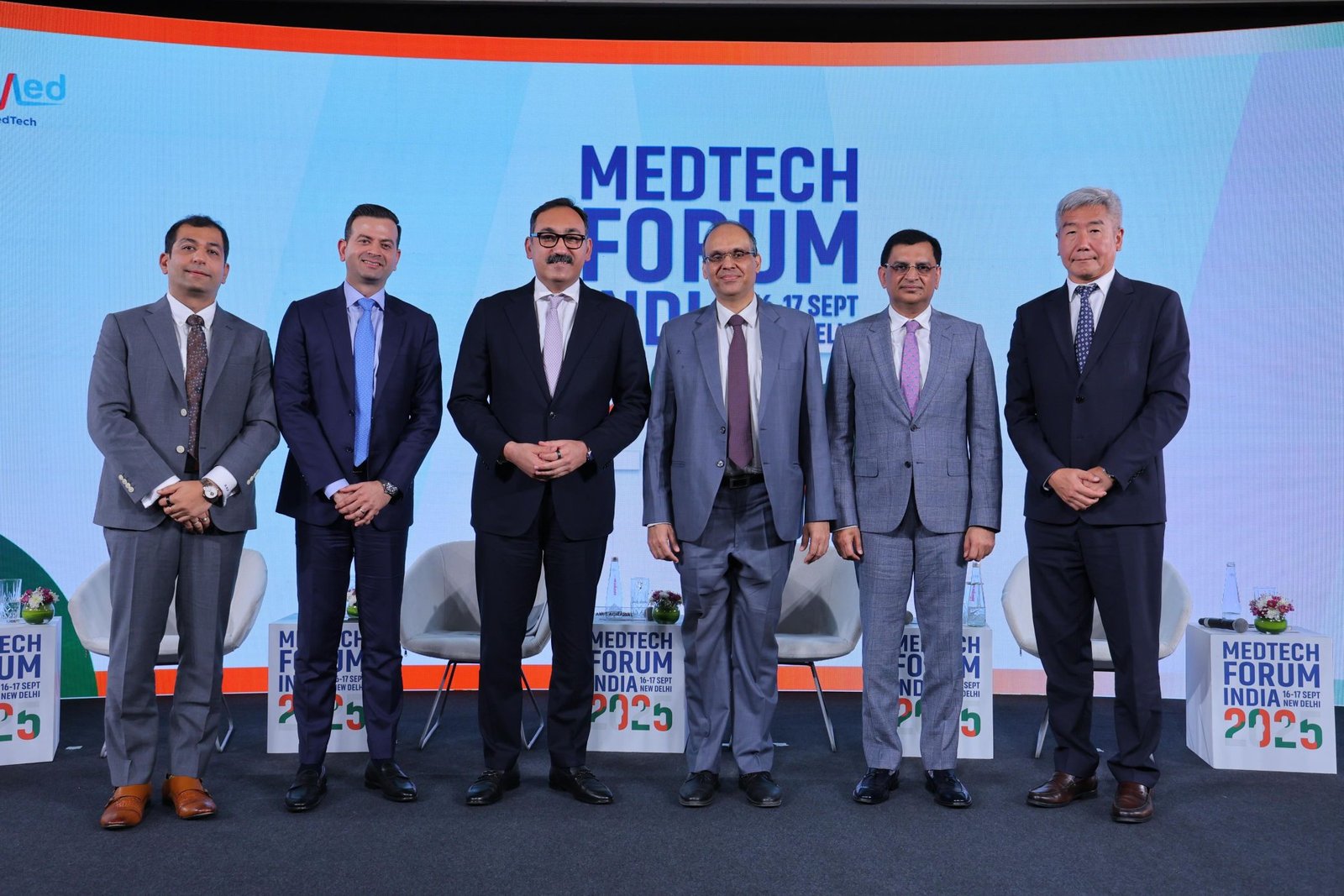
The 11th APACMed MedTech Forum (MTF), Asia’s most influential gathering of MedTech leaders, held on Sept 16, 2025, concluded successfully in New Delhi. Marking a defining moment for India’s healthcare and innovation landscape, it was organised by the Asia Pacific Medical Technology Association (APACMed). The two-day forum brought together over 500 participants, including senior government officials, global CEOs, regulators, and innovators, to position India as a worldwide hub for MedTech innovation, manufacturing, and regulatory excellence. Themed “Swastha Bharat – A Healthier India, Together,” the event aligned with India’s vision of Viksit Bharat 2047 and Healthcare Vision 2030. The event marked the presence of the titans of the industry, as well as key legislators and policymakers of the country.
The forum witnessed resolute participation from key government leaders, including JP Nadda, Union Minister of Health & Family Welfare, Anupriya Patel, Minister of State, Ministry of Health and Family Welfare and Ministry of Chemicals, and Dr. V K Paul - Member - Niti Aayog graded the inaugural session. Amit Agrawal, Secretary, Department of Pharmaceuticals, BVR Subramanyam - CEO Niti Aayog, Dr. Rajiv Bahl, Secretary, Department of Health Research & DG, ICMR, Parvinder Maini, Scientific Secretary - PSA. These architects reaffirmed the government’s commitment to accelerating India’s MedTech journey through policy reforms, regulatory streamlining, and infrastructure development.
JP Nadda remarked, “The MedTech sector is one of the key pillars of health transformation - whether through diagnostics, advanced devices, digital health or AI-driven solutions - MedTech has the power to make healthcare more accessible, efficient and affordable for all citizens. The MedTech Forum 2025 is closely aligned with the Prime Minister Narendra Modi Ji's vision for Viksit Bharat 2047.”
Global MedTech leaders, including Kevin Lobo (Chairman & CEO, Stryker), Gary S. Guthart (CEO, Intuitive Surgical), and Katarzyna Mazur-Hofsäß (CEO, Fresenius Medical Care), emphasised India’s strategic importance as a priority market for innovation and investment. Discussions explored India’s evolution from a cost-effective manufacturing hub to a global leader in high-value innovation, supported by its vibrant startup ecosystem, advanced R&D capabilities, and robust talent pool.
Anupriya Patel, MoS, added, “We are here to say to every CEO, every entrepreneur, every startup, every innovator, every healthcare leader who's travelled here that you're not just a business partner. You are co-architects in shaping a healthier future for this entire region. And India offers an unparalleled scale. It offers incredible diversity, world-class talent and an enabling policy environment which actively nurtures breakthrough innovations.”
Dr. Vinod K Paul: Member, Health, NITI Aayog | Government of India, "For us, as a part and parcel of the vision for Viksit Bharat 2047, we need growth, we need wealth creation and we need impact on the society at large, and you (APACMed) are the channels (to achieve this)”
John Collings, Chairman of APACMed and President, Asia Pacific, Stryker, noted, "At APACMed, our purpose is to advance standards of care, and we do this by creating a unified voice which allows us to engage with policymakers, to harmonise regulatory standards, to increase market access. We also invest in capability building and education, working with local authorities to build the skills that they need.”
A key highlight was the Regulators Forum, which convened leaders from across the Asia Pacific to discuss how regulatory agility can drive innovation in emerging technologies like AI, digital health, and personalised medicine. Leadership dialogues also focused on India’s transition from import dependency to self-reliance, with discussions on scaling advanced manufacturing, fostering innovation, and ensuring equitable access to healthcare technologies. The forum underscored India’s ambition to achieve a $50 billion MedTech market by 2030, driven by initiatives like the National Medical Device Policy and Production Linked Incentive schemes.